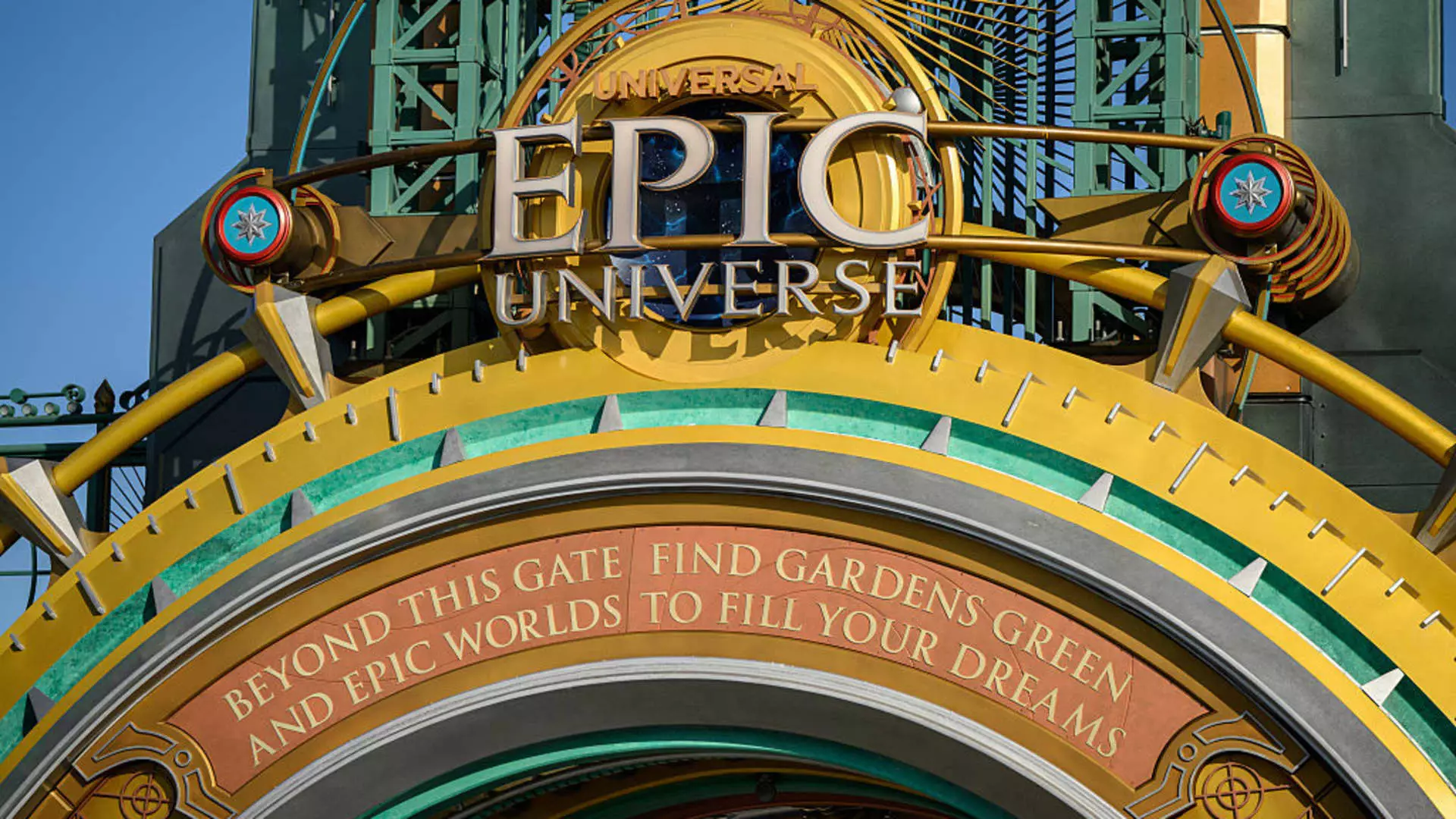As the world anticipates the grand unveiling of Epic Universe, one can hardly ignore the significance of this new theme park in Orlando—marking a pivotal shift in the tourism landscape. Scheduled to officially open on May 22, 2024, Epic Universe is not just another amusement park; it is the first major addition of its kind in Florida in 25 years. Covering a staggering 750 acres, this colossal venture features five distinctive themed worlds, expanding Universal’s already impressive roster that includes beloved franchises from The Wizarding World of Harry Potter to Super Nintendo World.
Universal’s parent company, Comcast, is reportedly investing around $7 billion in this venture, which underscores a significant commitment to Florida’s tourism economy. This underscores a broader trend where major corporations align their resources with the dynamic nature of consumer entertainment preferences. It is not just about providing fun; it is about integrating cultural touchstones with business acumen in a region long known for tourism.
Catalyst for Economic Growth
The impact of Epic Universe extends well beyond the glittering rides and immersive experiences it promises. According to studies from the University of Central Florida, Universal’s initiatives have historically yielded an impressive economic impact—$44 billion between 2019 and 2023—and the expectation is that Epic Universe will contribute billions more. In its first year alone, projections suggest an additional $2 billion injection into Florida’s economy, bolstered by new jobs and increased local spending.
Local businesses such as hotels, restaurants, and retail outlets stand to benefit immensely. The ripple effect of tourism on Orlando’s economy is profound; with projections of 17,500 new jobs created by the park’s operations, one can only imagine the new opportunities for residents and businesses alike. This highlights how pivotal tourism is as a lifeblood for the local economy, and how investments in entertainment draw not just immediate cash flow, but also longer-term growth potential.
A Boon for Local Employment
One of the most persuasive aspects of Epic Universe is its commitment to local employment. The narrative around job creation is compelling; not only are new positions necessary for the park’s construction—65,000 jobs were created in that phase alone—but there is also an ongoing need for skilled professionals once the park opens its doors. Universal expects to employ a diverse workforce from engineers to set designers, which speaks volumes about the inclusive nature of employment opportunities that can benefit a broad swath of the population.
Interestingly, this initiative plays into a larger narrative about labor market trends in Florida, where job growth is projected to outpace the national average. In a state often criticized for its uneven economic landscape, Epic Universe challenges that notion by being a beacon of hope and opportunity for many.
The Multiplier Effect
As Epic Universe prepares to welcome its first guests, the tourism multiplier effect creates an influx of revenue for surrounding areas. When millions flock to enjoy the park’s offerings, secondary spending in neighboring hotels, restaurants, and shops amplifies the economic influence. Unlike static investments, such as a shopping mall, theme parks generate ongoing consumer engagement. Visitors typically extend their stays, funneling their dollars into various local businesses.
Jakob Wahl, CEO of the International Association of Amusement Parks and Attractions, aptly characterizes this dynamic: new infrastructure, housing, and amenities are burgeoning in the surrounding area, all spurred by the construction of Epic Universe. The anticipation surrounding this park stimulates not just excitement but tangible economic development that will reshape the local landscape.
Competitive Harmony Among Attractions
Contrary to typical fears that new competitors will diminish existing attractions, the consensus among experts suggests that Epic Universe will create a harmonious ecosystem where all players benefit. Take, for example, Disneyland Paris; its opening in 1992 generated a vibrant wave that propelled nearby parks to reimagine and enhance their offerings. This could very well ripple through Orlando’s existing landscape, increasing patronage across the board, including Disney’s iconic parks.
The competition incited by Epic Universe would push both Universal and Disney to innovate continuously, ensuring that patrons receive the most engaging experiences. In a consumer economy where entertainment options are abundant, staying ahead necessitates creativity and reinvestment—a competitive environment that can only lead to more thrilling attractions.
Transformative Tourism Model
As we inch closer to the opening of Epic Universe, it becomes increasingly clear that this new park is not just another feather in Orlando’s cap but a transformative model for tourism as a whole. The crossover between entertainment and economic vitality is highlighted by the influx of tourists that extend their stay, which translates into millions for the community.
With Epic Universe at the forefront, Orlando is poised not merely to maintain but to elevate its status as a premier travel destination. The collaboration among various stakeholders, from Universal to local businesses, paves the way for a more cohesive strategy to maximize the impact of tourism in this vibrant locale. As we await the grand opening, one thing is certain: Epic Universe is set to redefine the tourism tapestry of Orlando and beyond, raising the bar for what a theme park can achieve.

